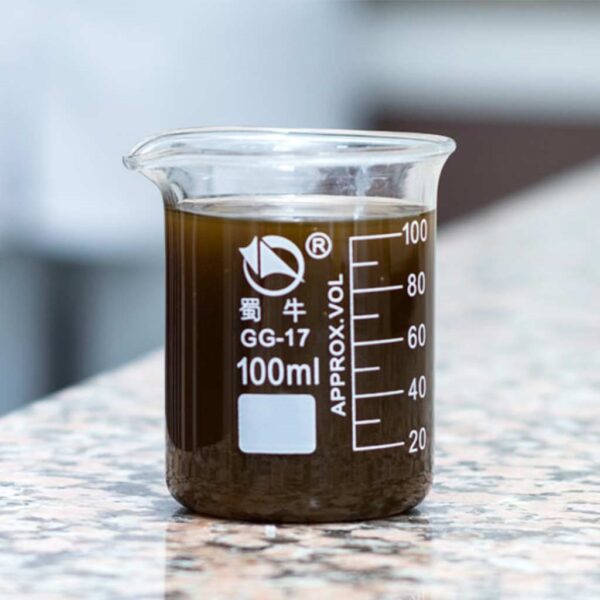The Health Benefits of Saponin(Plants Chemical Property)

Saponins (Latin “sapon”, soap + “-in”, one of), also selectively referred to as triterpene glycosides, are bitter-tasting usually toxic plant-derived organic chemicals that have a foamy quality when agitated in water. They are naturally occurring compounds found in various plants, and they offer a range of health benefits. Foods that are high in saponins can be found across various categories, particularly in legumes and grains.
The Health Benefits of Saponin
Saponins are naturally occurring compounds found in various plants, and they offer a range of health benefits. Here’s a summary of the key benefits:
- Cholesterol Management: Saponins can help reduce blood cholesterol levels by binding with bile acids and preventing the absorption of cholesterol into the body.
- Bone Health: They may contribute to better bone health, although the exact mechanisms are still being studied.
- Blood Sugar Regulation: Saponins have been shown to have a positive effect on blood glucose levels, which can be beneficial for managing diabetes.
- Cancer Risk Reduction: Some studies suggest that saponins may help lower the risk of certain types of cancer due to their ability to inhibit tumour growth.
- Dental Health: A diet rich in saponins might reduce dental caries.
- Antioxidant Properties: They can scavenge oxidative stress, which helps protect the body from damage caused by free radicals.
- Immune System Support: Saponins exhibit antimicrobial properties, which can boost the immune system and protect against various pathogens.
- Weight Management: They may assist in maintaining a normal body weight by inhibiting the release of lipase, an enzyme that breaks down dietary fats, and by reducing abdominal fat and triglycerides.
It’s important to note that while saponins have these potential health benefits, they should be consumed as part of a balanced diet. Excessive intake of saponins can lead to digestive issues, as they can interfere with normal nutrient absorption.
What are the properties of saponin?
saponins are fascinating compounds with a variety of properties that make them useful in many applications. Here are some of their key properties:
- Surfactant Nature: Saponins are known for their ability to create foam when mixed with water, thanks to their surfactant properties. This makes them useful in products like soaps and detergents.
- Amphipathic: They are both water and fat-soluble, which contributes to their effectiveness as surfactants.
- Chemical Structure: Saponins are glycosides, which means they consist of a sugar part (glycone) and a non-sugar part (aglycone). The aglycone part can be either a steroid or a triterpene.
- Biological Activities: They exhibit a wide range of biological activities, including antimicrobial, antidiabetic, and anticancer effects. Their ability to interact with cell membrane components like cholesterol and phospholipids makes them of interest in drug development.
- Bitter Taste: Many saponins are known for their bitter taste, which can deter herbivores from consuming plants that contain them.
- Foaming and Emulsifying: Saponins have emulsifying and foaming characteristics, which are valuable in the food and beverage industries, as well as in pharmaceuticals.
These properties contribute to the versatility of saponins and their use in traditional medicine, modern drug discovery, and various commercial products. However, it’s important to handle them with care, as they can be toxic in high doses and may cause adverse effects if consumed in large amounts
Saponins are natural compounds found in many plants, and while they offer several health benefits, they can also have side effects, particularly when consumed in large amounts. Here are some safety considerations and potential side effects associated with saponins:
- Gastrointestinal Discomfort: High levels of saponins may lead to gastrointestinal issues such as abdominal pain, bloating, diarrhoea, nausea, and vomiting.
- Increased Intestinal Permeability: In more severe cases, excessive consumption of saponins can contribute to a leaky gut, also known as increased intestinal permeability.
- Reduced Nutrient Absorption: Saponins can bind to cholesterol and other molecules, potentially interfering with the absorption of certain nutrients.
However, it’s important to note that saponins are generally safe when consumed as part of a normal diet. The body breaks them down into cholesterol-like compounds and sugars, and there is little possibility of overdosing on saponins from eating vegetables. As with any dietary component, moderation is key, and it’s always best to consult with a healthcare professional if you have concerns about your diet or are considering using saponin-rich plants for medicinal purposes.
External links
food with saponin





Review Saponin (Plants Chemical Property).
You must be logged in to post a review.